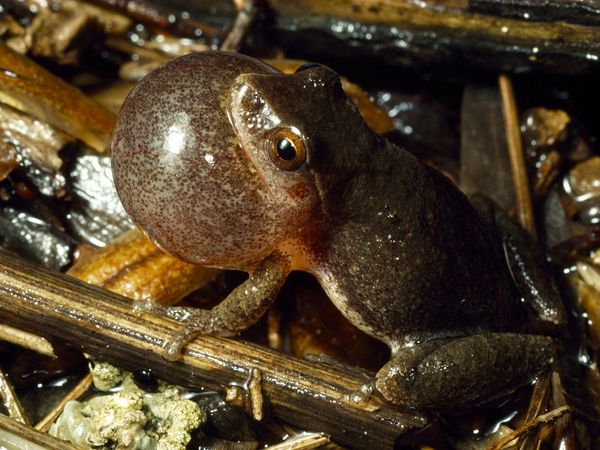The frogs are singing their lust in the marshes that border the college where I teach, bringing to mind Mary Oliver’s poem “Blossom.” Oliver’s harsh image of death—“Time chops at us all like an iron hoe”—gives a special urgency to the “frogs shouting their desire.” The poem thrusts forward in spasmodic bursts as it tries to capture “the burning.”
It so happens that I was teaching 17th century carpe diem poems yesterday and we were discussing exactly this contrast. Andrew Marvell conjures up images of worms and graves as he tries to persuade his coy mistress to “tear our pleasures with rough strife.”
Each of the poets we discussed invokes time and, while they talk about it differently, each sees a transcendent moment when the sexual moment trumps the chopping hoe.
To start with a contrast, Donne conjures up a Platonic vision where the sun stops in the heavens to shine upon the perfect lovers.
Shine here to us, and thou art everywhere;
This bed thy center is, these walls thy sphere.
Marvell, in the carpe diem tradition, acknowledges that he can’t hope for such a reprieve. He asserts, however, that the lovers can at least give the sun a run for his money:
Thus, though we cannot make our sun
Stand still, yet we will make him run.
John Wilmot tells us that Heaven allows no more that a “live-long minute” of constancy:
Blossom
By Mary Oliver
In April
the ponds
open
like black blossoms,
the moon
swims in every one;
there’s fire
everywhere: frogs shouting
their desire,
their satisfaction. What
we know: that time
chops at us all like an iron
hoe, that death
is a state of paralysis. What
we long for: joy
before death, nights
in the swale—everything else
can wait, but not
this thrust
from the root
of the body. What
we know: we are more
than blood—we are more
than our hunger and yet
we belong
to the moon and when the ponds
open, when the burning
begins the most
thoughtful among us dreams
of hurrying down
into the black petals,
into the fire
into the night where time lies shattered,
into the body of another
